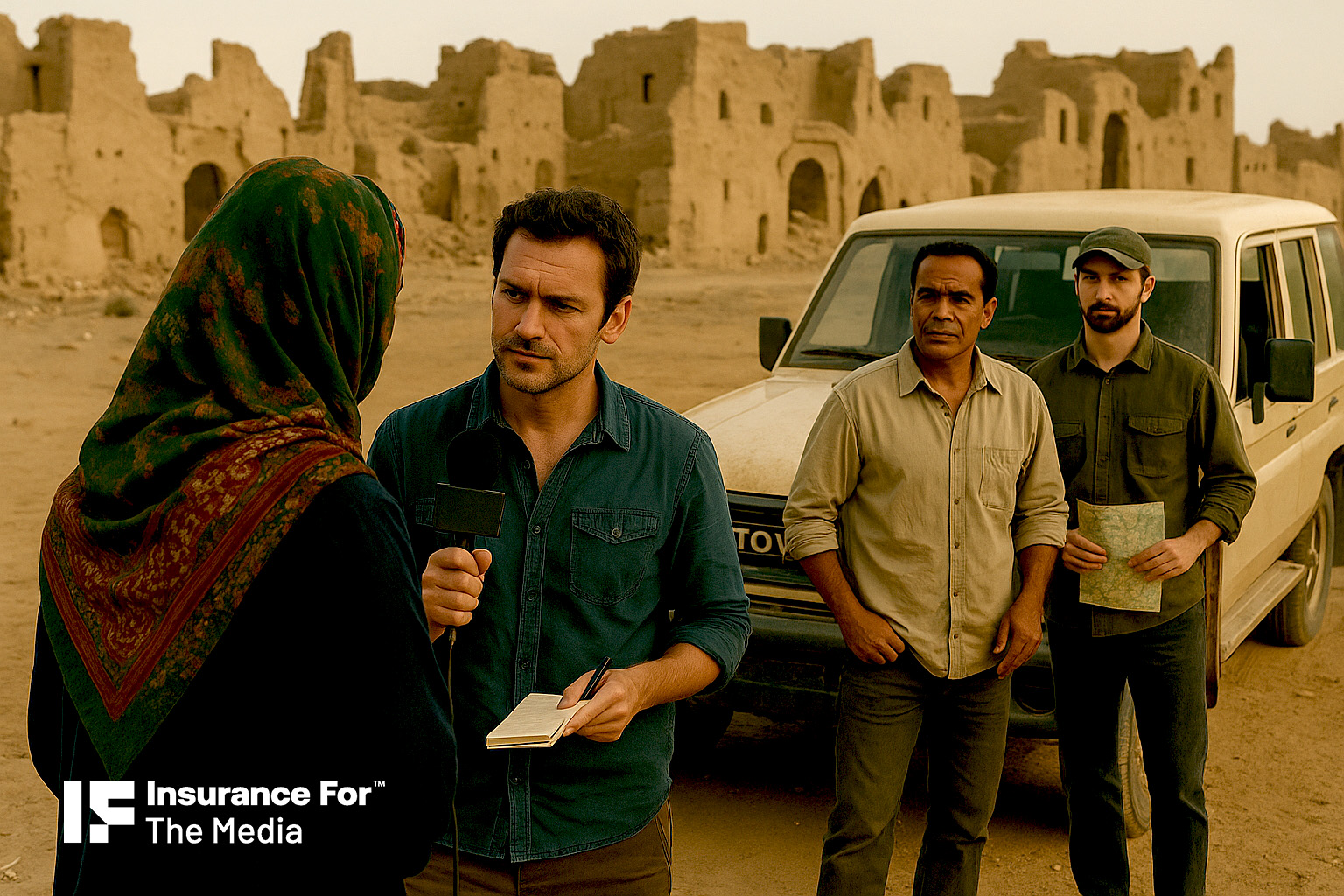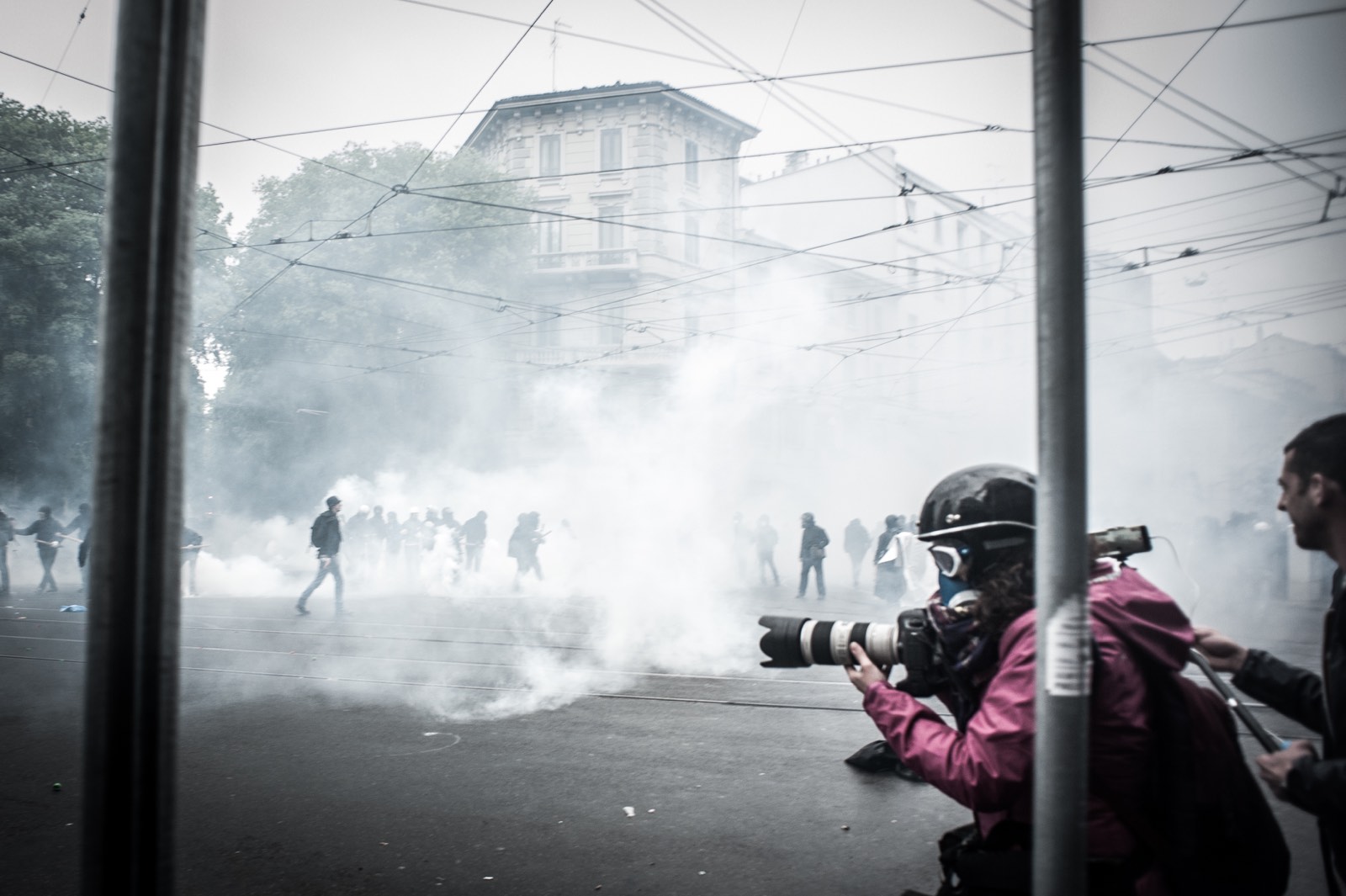Unseen, Unnamed, Uncovered: The Hidden Risks Faced by Fixers in Conflict Zones

Across the world’s most fragile environments, fixers are the quiet enablers of progress. Whether supporting journalists, humanitarian missions, election observers, or consultants, they are the bridge between international operations and local realities. They open doors, interpret nuance, navigate risk – and often, they do so in silence.
Yet for many of these individuals, one thing remains out of reach: adequate insurance cover.
At insuranceforgroup.com, we’ve supported clients operating in some of the world’s most volatile regions. A recurring issue we encounter is the lack of proper insurance for local fixers, translators, drivers, and other essential in-country collaborators – particularly when assignments are short, high-risk, or require confidentiality.
This article explores the deep risks fixers face, the reasons they are so often left unprotected, and how we can change that.
Who Are Fixers, and Why Are They So Critical?
A “fixer” is more than a translator or logistical aide. In humanitarian, security, or media contexts, fixers often act as:
- Cultural interpreters
- Political navigators
- Safety advisers
- Negotiators
- Crisis responders
They may help negotiate roadblocks, secure access to restricted areas, liaise with armed actors, or de-escalate tense situations. Their presence can be the difference between success and failure – or between life and death.
One NGO worker told us:
“He arranged our entire ground movement across three cities, coordinated local permissions and warned us when violence flared. Without him, the mission would have collapsed. We couldn’t have done it without his instincts.” And yet, these fixers are rarely formally contracted or insured.
Anonymity is a Lifeline
Fixers often work under extreme secrecy. In countries where collaboration with foreign actors is criminalised or politically dangerous, simply being known as a fixer can lead to retaliation.
We have spoken to clients operating in regions where being named in any official paperwork could jeopardise a fixer’s safety. In such cases, they need insurance solutions that offer:
- Flexible naming protocols (or coded references)
- No public registration of policyholders
- Discreet documentation
- Rapid activation without bureaucracy
This is where many mainstream providers fall short. At insuranceforgroup.com, we work to create cover that is human-first and risk-aware – not just form-driven.
What Happens When Fixers Are Left Uncovered?
Consider the following anonymised situations from real-world deployments:
- A fixer in northern Syria was seriously injured while coordinating access for an international delegation. Because he wasn’t formally listed on the mission’s travel insurance, his evacuation and medical care were crowdfunded by colleagues.
- A translator in South Sudan, working with election observers, was detained by local authorities and held without charge. No legal cover or emergency response plan had been extended to him.
- A fixer supporting consultants in a disputed border area suffered a trauma-related breakdown after being targeted by armed actors. There was no mental health support or post-mission debrief available.
The pattern is clear: when local fixers are left uninsured, it’s not just a legal or moral issue – it’s a humanitarian failure.
Why Are Fixers So Often Uninsured?
Fixers fall between the cracks of conventional insurance systems. Common barriers include:
- Short notice – Many deployments happen quickly, with little time for admin
- Freelance status – Fixers are rarely on payroll, making them “off the books”
- Geographic exclusions – Many insurers won’t cover high-risk regions
- Job type restrictions – Roles like fixer, interpreter, or liaison are often excluded
- Confidentiality needs – Naming fixers can expose them to risk
As a result, organisations may either:
- Omit them from policies altogether
- Rely on personal goodwill
- Assume local partners are responsible
None of these approaches provide the support these individuals deserve.
Media vs NGO vs Consultancy Fixers: Different Contexts, Same Risk
Whether you’re working with:
- A media fixer helping to set up interviews in Baghdad
- A driver supporting a humanitarian convoy in eastern Congo
- A translator assisting technical consultants in Kirkuk
…the core risks are surprisingly similar: arrest, injury, intimidation, and abandonment.
One election observer told us:
“Our fixer in the Central African Republic had his home raided after we left. No one told us he was in danger until weeks later. We had no post-mission protocols.”
This isn’t rare. It’s the norm. It just isn’t discussed publicly.
What Adequate Fixer Cover Looks Like
At insuranceforgroup.com, we offer flexible, rapid, and discreet insurance for fixers and local workers in conflict zones. A good policy should include:
- Medical evacuation and emergency assistance
- Crisis response (e.g. detention, security incidents)
- Mental health and trauma support
- Kidnap and ransom (K&R) cover if appropriate
- Short-term cover (from just 1 day)
- Anonymous or coded participant listing
If you need fast, high-risk insurance that works in places others won’t touch, get in touch with our team.
Case Snapshot: Evacuation in a Remote Area
In one recent case, a fixer supporting a logistics assessment team in a remote, contested region fell ill with suspected sepsis. No local medical facilities were available. Our emergency partner arranged a helicopter evacuation to a neighbouring country within 10 hours.
The fixer was uninsured until the team leader added him to a short-term declaration list three days before the mission. Without that, he would have been left behind.
What Organisations Can Do Differently
To improve outcomes for fixers and local collaborators:
- Include fixer cover in your operational budget
- Ensure all personnel, regardless of contract status, are included in risk planning
- Use insurance providers who understand high-risk, short-term missions
- Train teams to understand duty of care beyond employment law
- Review post-mission follow-up procedures for local contacts
Fixers are your front line. If they go unprotected, your whole mission is exposed.
What We Offer at insuranceforgroup.com
We specialise in high-risk, high-integrity insurance for:
- NGO deployments
- Journalistic assignments
- Conflict zone consultancy
- Elections, monitoring and civil society missions
- Cultural or archaeological fieldwork
We support both individuals and organisations with:
- Rapid quotes (usually within 24 hours)
- Anonymous worker declarations
- Policies valid in war zones or sanctioned areas
- Short-term or annual options
Explore our cover options or talk to an advisor.
External Resources Worth Knowing
We strongly encourage our clients to stay informed through these trusted platforms:
- Rory Peck Trust – Fixer safety resources
- CPJ Risk Advisory Guidelines for conflict zones
- International Committee of the Red Cross: Safer Access
- IFJ Safety Fund – used by many freelancers
- CHS Alliance – Duty of Care standards
These tools can complement your insurance cover with smart planning and real-world experience.
Final Thoughts: Safety Is a Choice
Too often, the people who know the most, risk the most, and enable the most are the ones most easily forgotten.
Fixers don’t ask for recognition. But they do deserve protection.
With the right policies, protocols and partners in place, you can ensure the people you rely on don’t have to rely on luck.
Need to check your fixer support strategy?
Get a quote or speak to our specialist team today.
insuranceforgroup.com
Simple. Human. Specialist cover for people working in difficult places.



